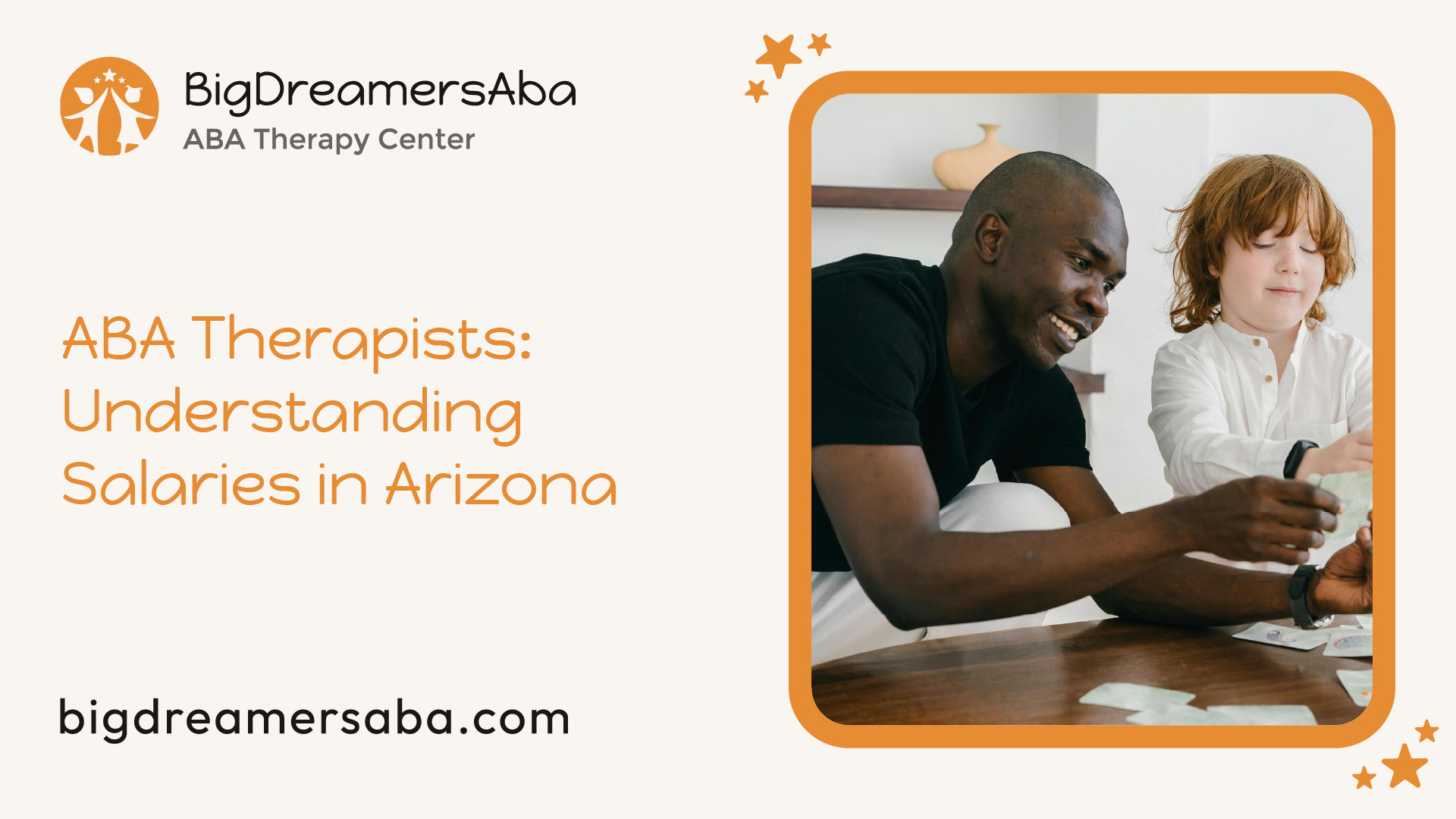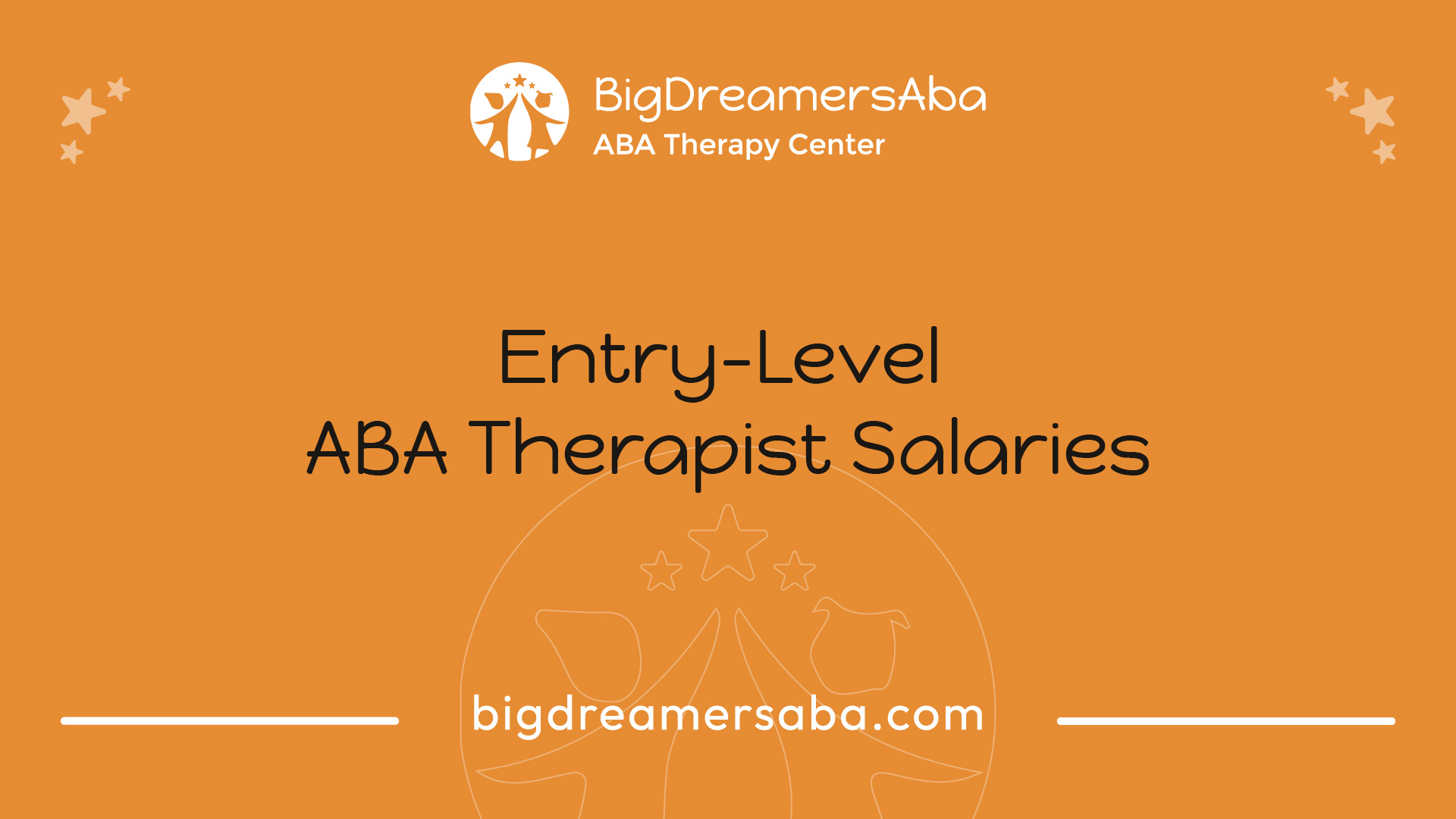ABA Therapists: Understanding Salaries in Arizona
Unlock ABA therapist salaries in Arizona! Discover how specialization and certification impact earnings.


ABA Therapist Salaries in Arizona
Factors Influencing Salary
When it comes to the salaries of ABA therapists in Arizona, several factors come into play in determining the compensation they receive. These factors can include experience, education, certifications, and even geographic location within the state. Higher levels of education and specialized certifications, such as BCBA, often lead to higher earnings for ABA therapists in Arizona.
Experience is another critical factor influencing salaries. Therapists with more experience generally command higher salaries compared to those who are just starting out in the field. The depth of knowledge and expertise that comes with years of practice can result in increased compensation opportunities for seasoned ABA therapists.
Geographic location within Arizona can also play a significant role in salary discrepancies among ABA therapists. Urban areas like Phoenix and Tucson may offer higher salaries compared to rural areas. This disparity is often due to the higher cost of living in metropolitan regions, as mentioned by Yellow Bus ABA. Additionally, urban areas typically have a higher demand for ABA services, leading to potentially higher compensation for therapists practicing in these regions.
Before negotiating salaries, ABA therapists in Arizona should conduct thorough research on average compensation rates in their specific area. Highlighting qualifications, experience, and specialized skills can strengthen negotiation positions. Moreover, it is essential to consider negotiating benefits and perks alongside monetary compensation, as suggested by Adina ABA.
Understanding the various factors that influence ABA therapist salaries in Arizona is crucial for both therapists and employers to ensure fair compensation that reflects the valuable services provided in the field of applied behavior analysis.
Entry-Level ABA Therapist Salaries

As individuals embark on their journey as ABA therapists in Arizona, understanding the salary range for entry-level positions is crucial for informed decision-making and career planning.
Salary Range for Entry-Level Therapists
Entry-level ABA therapists in Arizona can anticipate an average annual salary ranging from $35,000 to $45,000, according to various sources [1]. These figures provide a starting point for individuals entering the field of Applied Behavior Analysis and serve as a benchmark for salary expectations in the initial stages of their career.
It's essential to note that the salary range for entry-level ABA therapists can vary based on factors such as education, experience, additional certifications, and the specific organization or setting in which they work. As individuals gain more experience and expertise in the field, they may have the opportunity to advance to mid-level and senior-level positions, where salaries typically increase.
For more detailed information on ABA therapist salaries at different career stages and the influence of BCBA certification on earnings, continue exploring our comprehensive guide on ABA therapist salaries in Arizona. Stay informed about the potential for geographic variances in salaries within different regions of Arizona to make informed decisions about your career path in Applied Behavior Analysis.
Mid-Level ABA Therapist Salaries

As ABA therapists progress in their careers, their salaries tend to reflect their experience and expertise. Mid-level ABA therapists, who have acquired substantial experience and skills in the field, typically command higher pay compared to entry-level therapists. Let's explore the average salary range for mid-level ABA therapists in Arizona.
Average Salary Range for Mid-Level Therapists
Mid-level ABA therapists in Arizona can expect an average annual salary ranging from $45,000 to $65,000. This salary range represents a significant increase from entry-level salaries, reflecting the additional responsibilities and expertise that mid-level therapists bring to their roles.
For ABA therapists at this career stage, a combination of experience, specialized training, and proven success in implementing behavioral interventions contributes to their earning potential. As mid-level therapists take on more complex cases and play a key role in designing and implementing behavior modification programs, their value to ABA clinics and clients increases, correlating with higher salaries.
When negotiating salaries as a mid-level ABA therapist in Arizona, it's essential to research average salaries within the specific area, highlight qualifications and experience gained over the years, and consider negotiating not only monetary compensation but also benefits and perks. Understanding the market value for mid-level ABA therapists in Arizona and leveraging one's expertise can lead to favorable compensation packages that align with the therapist’s contributions to the field.
For additional insights on salary progression in the ABA therapy field, refer to our article on average BCBA salaries to understand the earning potential at advanced levels within the industry. Additionally, learn more about the impact of specialization and the benefits of BCBA certification on enhancing salary prospects in the field of Applied Behavior Analysis in Arizona.
Senior-Level ABA Therapist Salaries
As ABA therapists progress in their careers and reach senior-level positions, their salaries typically reflect their advanced skills, expertise, and experience. In Arizona, senior-level ABA therapists command higher compensation packages compared to their entry-level and mid-level counterparts. Let's delve into the average salary range for senior-level therapists in the field of Applied Behavior Analysis (ABA) in Arizona.
Average Salary Range for Senior-Level Therapists
Senior-level ABA therapists in Arizona are valued for their extensive experience and proven track record in implementing behavior analysis techniques to support individuals with autism spectrum disorder and other developmental disorders. Senior-level therapists can expect an average salary ranging from $65,000 to $85,000 or more annually.
The earnings of senior-level ABA therapists are influenced by several factors, including their level of education, specialization, certification status, and geographic location within Arizona. Advanced degrees, such as a master's degree in applied behavior analysis, may open up additional opportunities for career growth and higher compensation.
Certification also plays a significant role in determining the salaries of senior-level ABA therapists. Board Certified Behavior Analysts (BCBAs) in Arizona earn an average salary of around $66,830 annually, with experienced BCBAs potentially earning as much as $102,765 per year. Holding a BCBA certification signifies a higher level of expertise and commitment to the field of behavior analysis, leading to increased earning potential for senior-level therapists.
Geographic location within Arizona can also impact senior-level ABA therapist salaries. Urban areas such as Phoenix and Tucson tend to offer higher salaries for ABA therapists compared to rural areas, as noted by Yellow Bus ABA. The cost of living in metropolitan areas and the higher demand for ABA services contribute to the competitive salaries offered to senior-level therapists in urban settings.
For senior-level ABA therapists in Arizona, continuous professional development, specialization in specific areas of behavior analysis, and obtaining advanced certifications can further elevate their earning potential and enhance their impact within the field. As senior-level practitioners, experienced ABA therapists play a vital role in shaping the future of behavior analysis and positively influencing the lives of individuals with diverse needs.
Specialization and Earnings
When it comes to the earnings of Applied Behavior Analyst (ABA) therapists in Arizona, one significant factor that can impact salaries is the specialization of the therapist. ABA therapists who specialize in specific areas, such as early intervention or working with individuals with complex needs, may have a competitive advantage in the job market and potentially earn higher salaries than those with more general expertise [1].
Impact of Specialization on Salaries
Specializing in a particular area of ABA therapy can lead to increased earnings for therapists in Arizona. Here are some key points to consider regarding how specialization influences salary levels:
For ABA therapists in Arizona seeking to maximize their earning potential through specialization, conducting thorough research on average salaries in their specific area, highlighting their qualifications, and negotiating additional benefits alongside monetary compensation can help secure competitive and rewarding salary packages [3]. By leveraging their specialized skills and experience, ABA therapists can align their career paths with their financial goals and professional aspirations.
BCBA Certification and Earnings
Influence of Board Certified Behavior Analyst Certification on Salaries
For Applied Behavior Analysts (ABA) in Arizona, obtaining the Board Certified Behavior Analyst (BCBA) certification can significantly impact their earning potential and career advancement opportunities. ABA therapists who invest in obtaining BCBA certification often find themselves eligible for more advanced positions and attract increased compensation, leading to higher salaries throughout their careers.
Certified ABA therapists in Arizona tend to earn a median annual salary of around $60,000, according to Adina ABA. On the contrary, non-certified ABA therapists typically earn a median annual salary of approximately $45,000. This notable salary disparity underscores the significant impact that BCBA certification can have on the financial prospects of ABA therapists in Arizona.
The data provided reveals that Board Certified Behavior Analysts (BCBAs) in Arizona earn an average annual salary of around $66,830. Experienced BCBAs in the state have the potential to earn upwards of $102,765 per year. The higher earnings attributed to BCBA certification reflect the increased expertise, dedication, and advanced skills that certified ABA therapists bring to their practice.
Specializing in specific areas within ABA can also positively impact an ABA therapist's earning potential. ABA therapists who focus on areas such as early intervention or working with individuals with complex needs may have a competitive advantage in the job market. This specialization often leads to increased demand for their services and, consequently, higher salaries.
In conclusion, the pursuit of BCBA certification not only enhances the professional standing and expertise of ABA therapists but also plays a crucial role in elevating their salaries and overall career growth within the field of applied behavior analysis.
Geographic Variances in Salaries
When considering ABA therapist salaries in Arizona, it's important to note that there are significant salary disparities across different areas within the state. Metropolitan regions such as Phoenix and Tucson generally offer higher salaries for ABA therapists compared to rural areas.
Salary Disparities in Different Arizona Areas
The salaries of ABA therapists in Arizona can vary based on the location of employment, with urban areas typically offering more competitive compensation packages. This is primarily due to the higher demand for ABA services in metropolitan areas, coupled with the increased cost of living in urban centers.
Arizona AreaAverage Salary RangePhoenix$45,000 - $65,000Tucson$42,000 - $60,000Rural Areas$38,000 - $52,000
Figures derived from Adina ABA and Yellow Bus ABA
Urban settings like Phoenix and Tucson tend to have a higher concentration of autism treatment centers and larger populations, leading to an increased demand for ABA services. Consequently, ABA therapists in these cities command higher salaries to meet the growing need for specialized care.
While rural areas may offer lower salaries for ABA therapists, they often provide a lower cost of living, which can be advantageous for those seeking a more affordable lifestyle. The decision on where to practice as an ABA therapist should consider not only salary considerations but also personal preferences, career growth opportunities, and the overall cost of living in different Arizona regions.
References
[2]:
[3]:
Recent articles

ABA Techniques for Picky Eaters: Building Better Habits

How Social School Support Makes School Transitions Easier for Children
